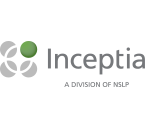Resolving Citizen and Eligible Noncitizen Issues
By Brenda Murtha, NASFAA U Instructor
Rene Tiongquico and Aaron Washington, both representing the U.S. Department of Education, reviewed information on the topic of citizens and eligible noncitizens as it relates to eligibility for Title IV aid. Although statutes and regulations are unchanged in this area, there continue to be many questions brought forth.
Tiongquico started the discussion with the basic premise that students who may be eligible for Title IV aid include U.S. citizens or nationals, as well as eligible noncitizens. For citizens and nationals, the student’s Social Security Number (SSN) is checked against data contained in the Social Security Administration’s database. For eligible noncitizens, the Alien Registration Number entered on the FAFSA is checked against the Department of Homeland Security (DHS) records. Notification flags (comment codes) are noted on the ISIR when there are issues with these data matches. Tiongquico pointed out that, in the case of a Parent PLUS Loan, both the student and parent must meet the citizenship or eligible noncitizenship requirements.
If the DHS match fails initially, there is a secondary confirmation process performed by the CPS. If the secondary confirmation fails, the school is required to complete the G-845 process, currently a paper process, through the Systematic Alien Verification for Entitlement (SAVE) system. Important note: except for students affected by VAWA (battered immigrants-qualified aliens), G-845 forms must all now be sent to the Los Angeles field office, rather than the Buffalo office. Forms for VAWA students will continue to be sent to the Buffalo NY office. A formal announcement of this change will be forthcoming from ED.
Tiongquico reminded the audience that for documents proving U.S. citizenship, a birth certificate must show birth in the U.S. in order to be considered valid documentation. For documents proving eligible noncitizen status, he indicated the documents must not be expired. His best advice regarding acceptable documents for noncitizens is to refer to Volume 2, Chapter 2 of the FSA Handbook. There are several versions of acceptable documentation which are outlined in that particular chapter.
Aaron Washington gave details on the G-845 process, and said there is no need to go through the G-845 process for Deferred Action for Childhood Arrivals (DACA) students, as they do not qualify for Title IV aid. Sometimes these students are completing FAFSA’s to see if they qualify for state or institutional aid. Washington went on to say there is no need to do the G-845 process if a student was confirmed as an eligible noncitizen in the previous award year, the document has not expired, and there is no conflicting information. He added a note on confidentiality: you are authorized to copy documents; just make sure to keep those copies secure.
Lastly, if a student cannot appear at your institution to provide documents, he or she can photocopy, fax or scan the document to you. Although not a requirement, it would be a good practice to include an affidavit with the copy or fax.
Publication Date: 7/25/2016











You must be logged in to comment on this page.